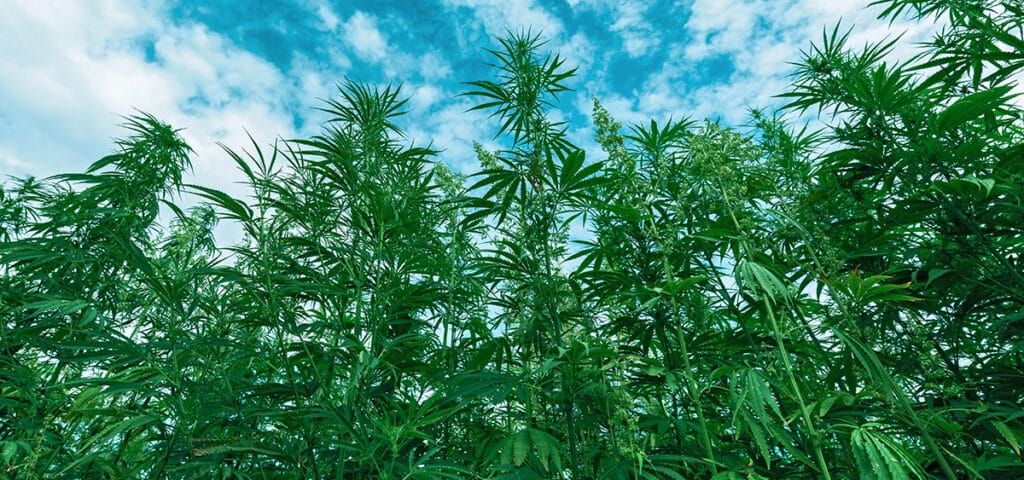The Maryland Hemp Coalition and others filed a lawsuit this week claiming that the state’s adult-use cannabis regulations are discriminatory and being monopolized against hemp companies.
Maryland Hemp Companies Sue State Officials After Cannabis Regulations Force Them Out of Business

Cultivated industrial hemp farm field, Cannabis sativa plant species grown for use of its derived products
Full story continued below.
Advertisement
The Maryland Hemp Coalition, several hemp farmers, and other business owners on Monday filed a lawsuit against state officials and agencies over a new licensing process they claim is discriminatory and being monopolized, WBFF reports. The lawsuit names Gov. Wes Moore (D), the Maryland Cannabis Administration, and the Maryland Alcohol, Tobacco, and Cannabis Commission.
The lawsuit challenges provisions in the state’s adult-use cannabis law that cap levels of THC in hemp-derived products that could be sold without an adult-use cannabis license along with details surrounding the licensing process, the report says. Following the passage of the law, hemp businesses were forced to close on July 1.
In an interview with WBFF, Nevin Young, an attorney representing the hemp industry in the lawsuit, said the licensing process violates Maryland’s anti-monopoly laws “by creating a monopoly on licenses to sell cannabis-related products in the state of Maryland,” and the Equal Protection Act “by inventing certain categories of persons who will only be eligible to submit applications for the first round of licenses” – namely social-equity applicants.
“My clients, who have been lawfully selling these products for years, are suddenly in a position where they are being told they can’t sell their products without a license, and yet the obstacles to get a license are nearly insurmountable. … They know that when the state grants monopolies, it’s an invitation to graft favoritism, it eliminates competition, it raises prices, and it limits consumer choice. As soon as a lot of money is on the table, a lot of our elected officials seem to forget about those basic principles.” — Young via WBFF
The current licensing process in Maryland is a lottery and first-round applicants must qualify as social equity applicants, which in Maryland is defined as an applicant with at least 65% ownership and control held by at least one person who has lived in an area disproportionately impacted by drug law enforcement for at least five years of the last decade; attended a public school in a disproportionately impacted area for at least five years; or attended, for at least two years, a 4-year higher education institution in Maryland where at least 40% of the people attending the institution are eligible for a Pell Grant.
Maryland defines an area as disproportionately impacted as having above 150% of the state’s 10-year average for cannabis possession charges. A map of the zip codes that qualify has not yet been provided by state officials.
Young told WBFF that while the lawsuit plays out in court, he’s seeking a temporary restraining order and preliminary injunction to stop the state from enforcing the ban on hemp-derived products. A hearing date has not yet been scheduled for the case.
Get daily news insights in your inbox. Subscribe
End